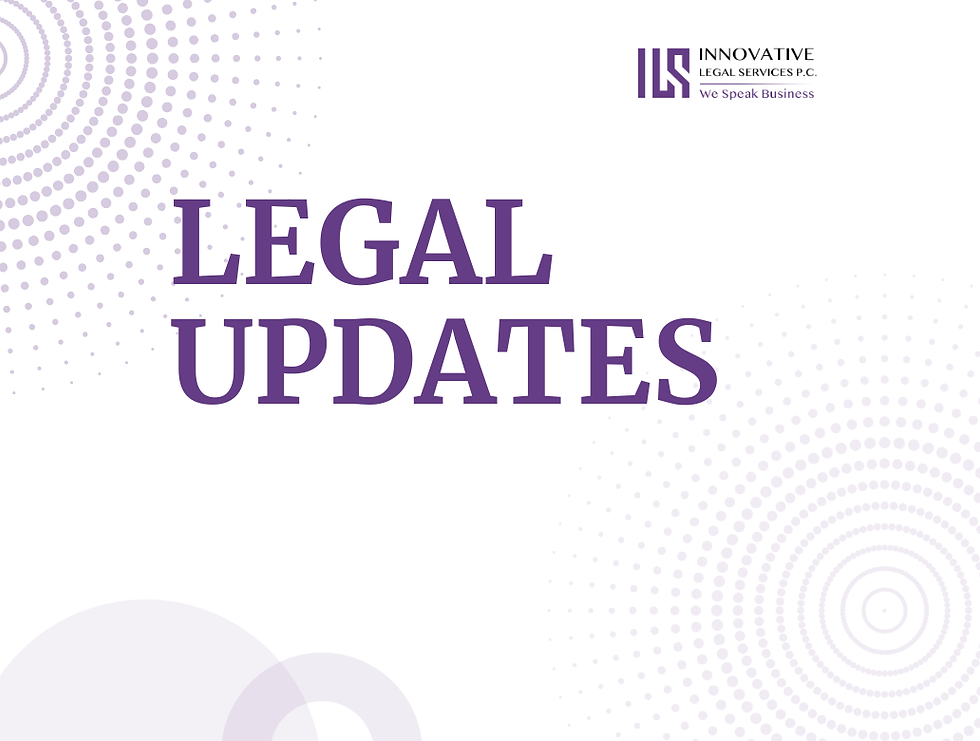California Employee Monitoring Compliance Tightens: AB1221 and AB1331 Under Scrutiny
- Susan Shu

- Sep 4, 2025
- 3 min read
Updated: Oct 23, 2025
California has long been at the forefront of privacy protection in the United States. Beyond the constitutional right to privacy, existing state laws already impose significant obligations on employers. For example, the California Invasion of Privacy Act (CIPA) prohibits recording employee conversations without consent, while the California Labor Code prohibits installing cameras in restrooms, locker rooms, and other private areas.
Building on this foundation, the California Legislature has introduced two new employee monitoring bills in 2025: AB1221 and AB1331. Together, these bills clearly reflect California’s legislative trend toward strengthening employee privacy protections. Both are under consideration in the Legislature, with AB1331 expected to pass later this month.
If you have questions about California’s employee monitoring regulations or need compliance support tailored to your business, please contact our Managing Partner, Richard Liu, at contact@consultils.com.

Key Provisions of the New Bills
AB1221: Advance Notice and Technology Restrictions
Employers using cameras, monitoring software, or any other surveillance tools must provide employees with at least 30 days’ prior written notice. Such notice must specify the type of monitoring, the scope of data collected, the retention period, access rights, and whether the monitoring could impact employment decisions.
Employers may not use facial recognition, emotion recognition, or other high-risk monitoring technologies.
AB1331: Prohibited Areas and Time Restrictions
Employers may not install monitoring equipment in non-work areas, including restrooms, locker rooms, cafeterias, break rooms, or lactation rooms.
If monitoring tools are installed on company devices, such tools may not operate outside of working hours or capture personal, non-work-related employee information.
Employers are prohibited from installing monitoring tools on employees’ personal devices or vehicles unless they can demonstrate that such monitoring is “strictly necessary.” In practice, employers must show why alternative, less intrusive methods of employee management (such as performance evaluations) are insufficient.
Legislative Developments
AB1331 has already passed the Assembly and cleared Senate committee review. It is now awaiting a third reading and final floor vote, with strong prospects of being approved and sent to the Governor for signature this month.
The regulations respond to growing concerns that AI systems may perpetuate bias, lack transparency, or compromise worker privacy. Employers across industries should take these requirements seriously. Not only to avoid penalties, but also to build trust with employees, ensure fairness in decision-making, and strengthen compliance practices in an evolving regulatory landscape.
If you have questions about California’s employee monitoring regulations or need compliance support tailored to your business, please contact our Managing Partner, Richard Liu, at contact@consultils.com.
Disclaimer: The materials provided on this website are for general informational purposes only and do not, and are not intended to, constitute legal advice. You should not act or refrain from acting based on any information provided here. Please consult with your own legal counsel regarding your specific situation and legal questions.

Susan is specialized in employment law and compliance, with additional experience in cross-border investments. With years of experience advising multinational clients, Susan focuses on employment-related matters, including workforce structuring, employee transfers, terminations, compensation and benefits, and workplace policies. She has extensive experience assisting companies in navigating complex labor regulations, managing cross-border employment issues, and resolving workplace disputes.
In addition to her employment law practice, Susan advises on M&A, private equity, venture capital, and cross-border investments. She has assisted international investors with complex deal structures, including VIE frameworks, and prepared due diligence reports and transaction documents.
Email: contact@consultils.com | Phone: 626-344-8949



Comments